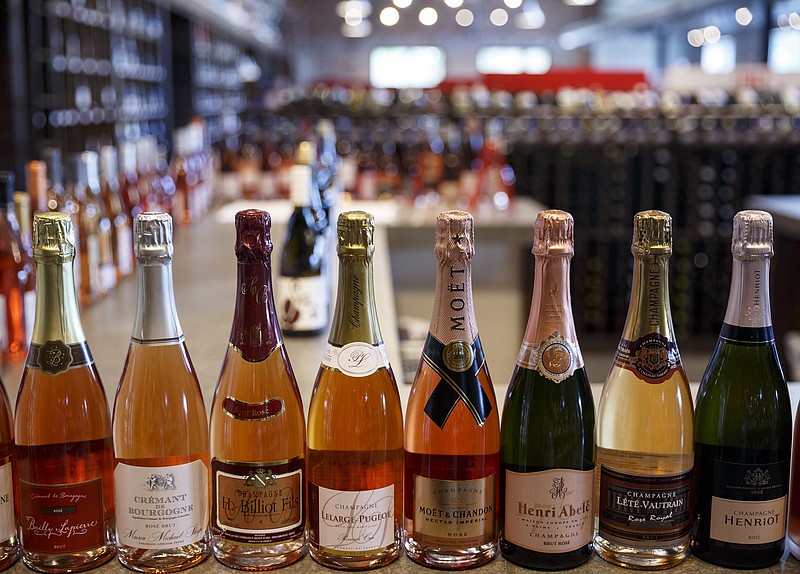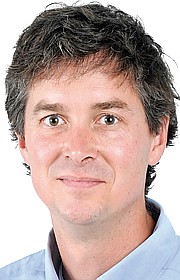View other columns by David Cook
Sales of George Orwell's classic "1984" spiked last week after the White House spoke of "alternative facts," echoing Orwell's prediction of a totalitarian repression of truth through "newspeak."
It's a good exercise: the overlap of dystopian fiction with real-world events.
In 1931, Aldous Huxley wrote "Brave New World" with a startling premise: centuries in the London future, a repressive government has subdued its citizens not through threat or violence but through pleasure.
The drug is called soma. It's a real gem, a honeypot of hallucinations and antidepressant, with none of the hangover. But the cartels don't make and sell it. The government does, gladly dispensing it across the land.
So instead of protesting and challenging, the citizenry is sedated. It's easy oppression. Why fight your citizens when you can dope them up instead?
"Stability was practically ensured," Huxley wrote.
Orwell predicted tyranny would come overtly and forcefully, through the banning of books and truth. For Huxley, tyranny was sly. It would arrive through a warm bath of pleasure, with a populace that cares more about comfort than critical thought.
"In short, Orwell feared that what we hate will ruin us. Huxley feared that what we love will ruin us," the social critic Neil Postman wrote in his brilliant "Amusing Ourselves to Death."
Many recent headlines have referred to Orwell.
But I keep thinking of Huxley.
At nearly every turn, American culture and capitalism offer us pleasure - sugar, alcohol, entertainment, sex, distraction - at volumes never before experienced in human history. Measure us by our crises - opioids, obesity, alcoholism, drugs, pornography - and you will find a culture that is overwhelmed in addiction, in the practice of satisfying the flesh.
It is a pleasure pipeline.
For the last few weeks, I've kept a running list of examples, large and small.
* The push for wine sold in grocery stores on Sunday.
* For beer sold in movie theaters.
* And high-gravity beer sold in groceries.
* McDonald's new Giant Mac, a burger with 1/3 pound of meat.
* The continued push for legal marijuana. (Nearly 25 percent of Americans live in a place where pot is legal, Time reports.)
* Our continued opioid crisis. (Americans consume 80 percent of the world's opioids.)
* Our continued pornography crisis. (The U.S. porn industry earns roughly $12 billion a year, about the same as the NFL.)
Tie them all together, and they're connected by one thread: our desires and cravings.
This is not an indictment of you or me, personally. Or her. Or him. It's all of us. Our culture, the ethos of our society. Check my bloodstream; you'll find it's similar to yours. I've never met a wine I didn't like. And yes, I partied brazenly through my own Woodstock years.
But collectively, we must begin to question our abundance of comfort. At what point does enough become enough? With all our arenas of satisfaction, why are we so unhappy? Isolated? Mentally ill?
Perhaps our pleasure is worth only as much as our restraint.
Restraint keeps us in check. Yes, we may party all night on Saturday, but Sunday follows, and we are in the pew again, or refraining from work, or silent. Restraint develops our ability to say no to the flesh and its endless appetites, and yes to our higher selves.
Blue laws, for all their weirdness, also embodied this act of saying no. Sure, they could be insanely Puritanical, but blue laws also reminded us that we are more than our flesh. They legislated moderation and self-discipline.
Who speaks for moderation and self-discipline today?
With all the carnival pleasure before us, should we not also have some intentional conversation about temperance? And clear-headedness? Self-discipline?
Yes, a free people should be free to do what they wish.
But as Huxley might ask: exactly how free are we when so much of society is desperately trying to get us hooked?
David Cook writes a Sunday column and can be reached at dcook@timesfreepress.com or 423-757-6329. Follow him on Facebook at DavidCookTFP.


